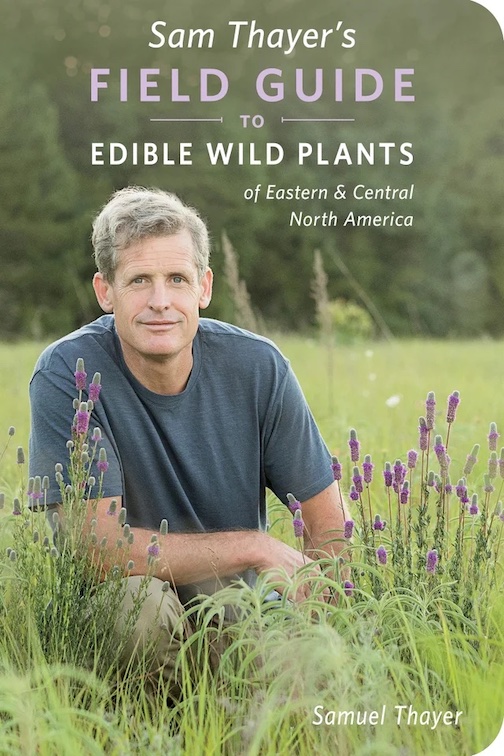
By Samuel Thayer
Forager’s Harvest Press, 2023
736 pages, paperback, $32.95
“Sam Thayer’s Field Guide to Edible Wild Plants: of Eastern and Central North America” offers a practical and informative resource for anyone with an interest in wild plants or foraging. It is Thayer’s third book and his expertise in the subject is evident throughout it. Covering 679 plants, it contains a wealth of information presented in a straightforward manner. The inclusion of 1,700 clear color photographs aids in plant identification, making the book accessible for readers of varying levels of experience. Like most plant guides, it is organized by plant type, but other aspects set it apart from the other resources out there.
A standout feature of this book is Thayer’s emphasis on safety. He provides important cautions and guidance to prevent confusion with potentially toxic plants, ensuring readers can forage with confidence. Plant profiles have a “Quick Check” to give a small overview of what you may be looking at, but this is followed by a much more in-depth description that is broken down by plant parts. Some plant profiles have a section titled “Confusing Plants,” which can help alert people to potentially toxic look-alikes. For instance, the entry for comfrey lists foxglove as a “Confusing Plant” since the leaves can look very similar to an unfamiliar eye and foxglove is toxic. At the back of the book there is even an index section for “Poisonous and Confusing Plants.”
Another interesting aspect of the index is the included tables, which can help folks identify wild plants by habitat and season. Culinary tips and recipes from Thayer’s own experience give readers real reference points to create their own recipes with wild, new-to-them foods. While every plant might not become the star of your next meal, Thayer’s suggestions provide a glimpse into the possibilities of incorporating wild edibles into your diet.
While this book may be a bit heavy to tote around on a long backpacking trip, it is a real wealth of information and a worthy addition to the library of anyone who wants to learn more about the natural world around them.
Denise DeSpirito, Of the Spirit Herbals, Rockland, Maine
